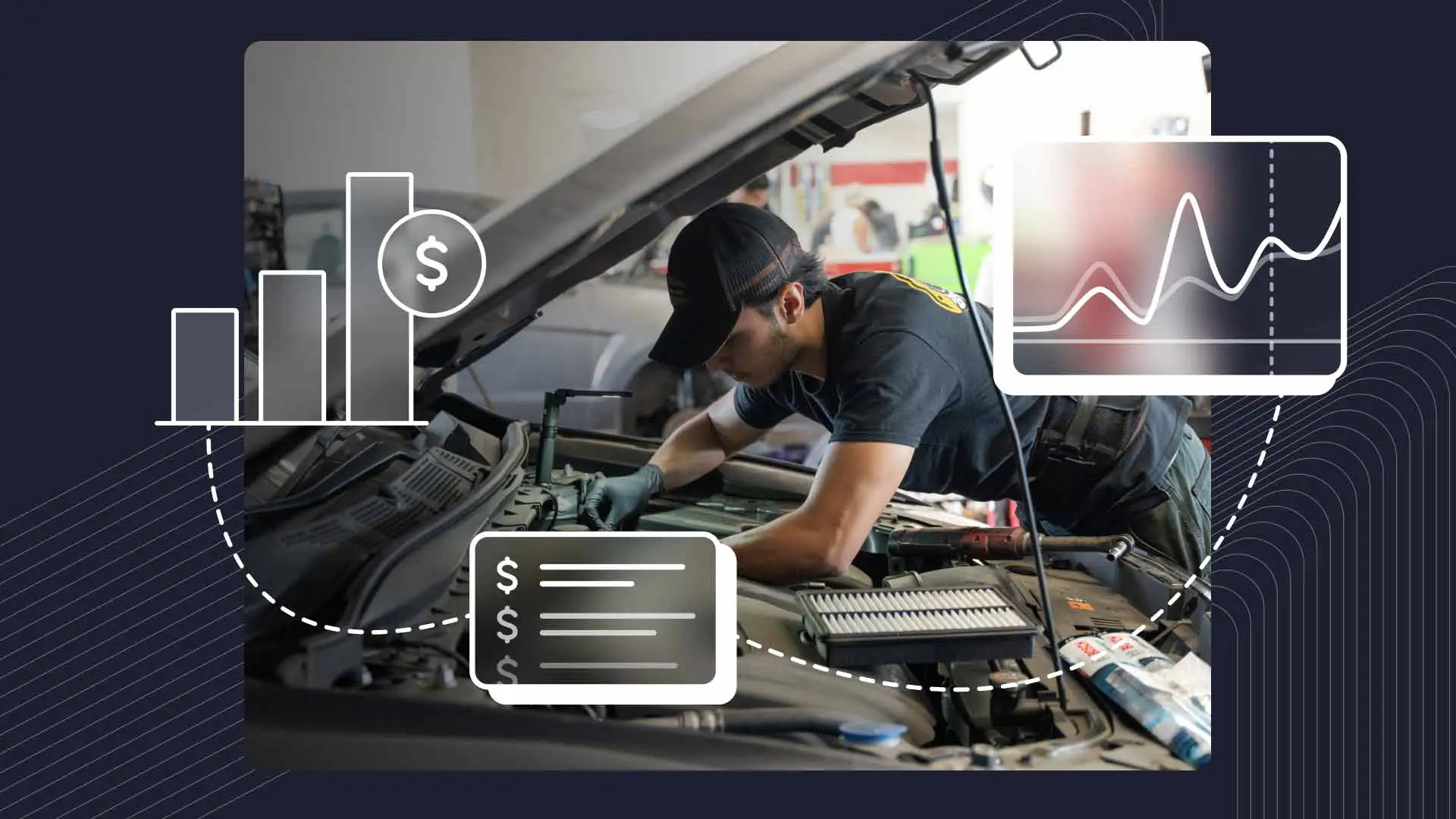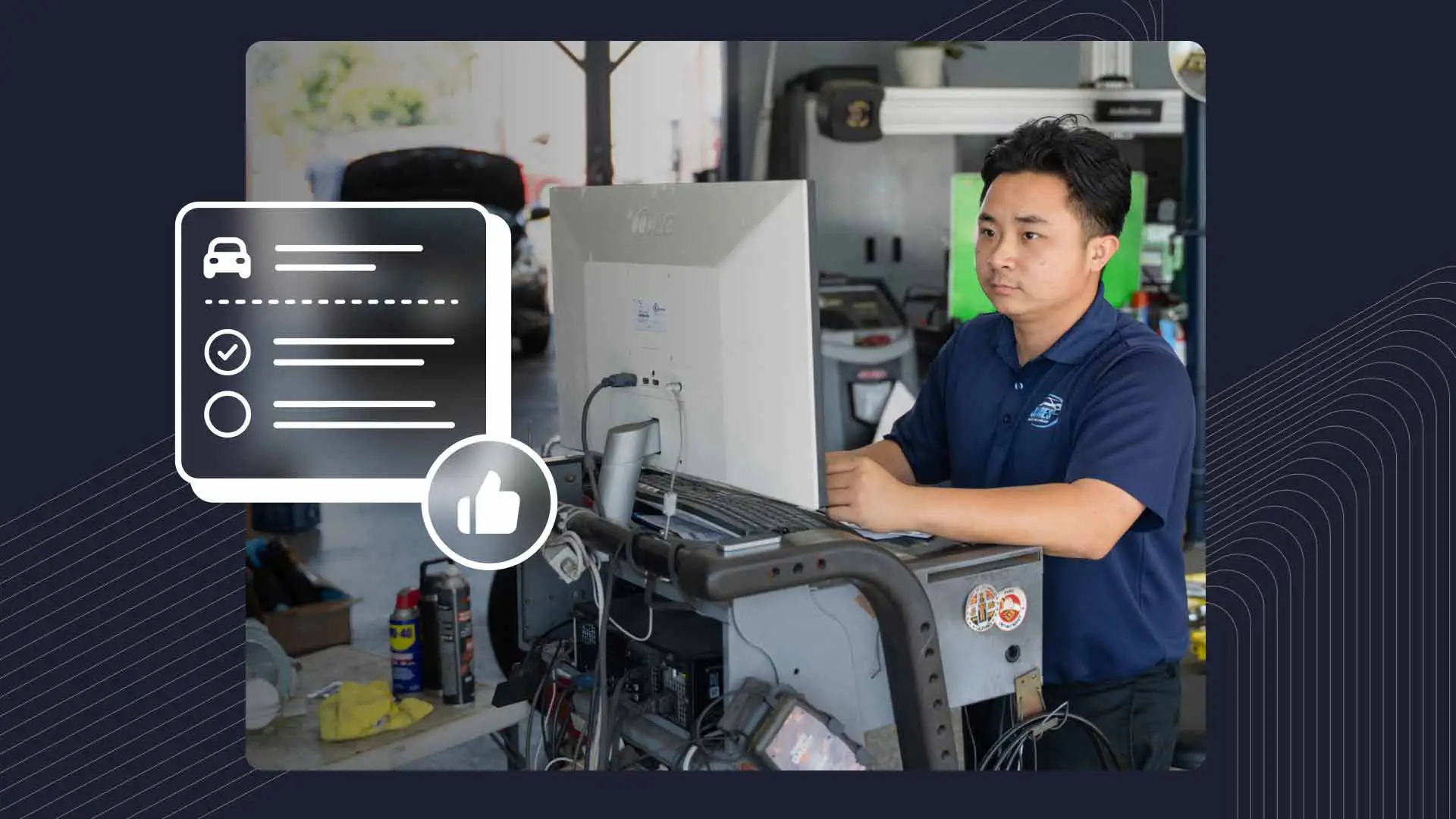Mechanics are the foundation of any auto repair shop, and hiring the right ones can make or break your business. But these days, finding top talent can be a challenge. With more than 67,000 auto repair technician openings expected each year for the next decade, the number of new workers entering the field isn’t keeping pace with demand.
On the other hand, for mechanics in search of new job opportunities, the options may seem limitless. Finding the right fit, however, is a whole other ball game. It’s not just about pulling down a paycheck–it’s about choosing a workplace that matches up with your skills, experience, and career goals.
Whether you’re a shop owner trying to attract great employees or a mechanic looking for the best fit, mastering the interview process is a must. Let’s explore how to approach interviews effectively–from both sides of the table–and set yourself up for success.
For Prospective Mechanics
Preparing for an Auto Repair Interview
Showing up on time is a good start, but there’s a lot more that goes into preparation. Begin by researching the shop. Does it focus on specific services or vehicles (classic cars, diesel trucks, etc.), or cater to a broad clientele? How is it viewed by customers, and within the industry? The better you understand the shop’s culture and what it does, the more effectively you can tailor your answers to the role you’re seeking.
Next, review your skills. Highlight the technical areas where you excel, including experience with different engine types, transmissions, and specialized tools or equipment. Be sure to note your soft skills, too–things like communication, teamwork, and problem-solving. Employers like candidates that are well-rounded, and pointing out how you’ve leveraged these skills will show them you’re not one-dimensional.
Having some thoughtful questions ready for the interview is another smart move that tells employers you’ve put effort into your preparation. Ask about the shop’s training programs, opportunities for career growth, and work environment. This not only shows employers that you’ve done your homework, it also helps you determine whether the shop is a good fit.
And don’t forget to dress appropriately. While it may not be suit and tie territory, looking neat and professional helps make a strong first impression. It conveys a level of respect and tells the interviewer you’re serious about the opportunity.
For the interview itself, be ready to field common questions. For example, they may ask, "Tell me about a time you had to troubleshoot a difficult repair." This is a good opportunity to explain how you approached the problem and the steps you took to resolve it. Or, they might ask, “Describe your experience with specific diagnostic tools or software.” Here, you can offer concrete examples of how you’ve used these tools in the past, and mention any specialized training or in-depth knowledge. If they ask, “How do you stay updated on the latest automotive technology?” mention your commitment to continued learning and cite any industry publications, trade shows, online resources, or training programs you use. Other questions like “How do you handle customer complaints?” and “Why are you interested in working at our shop?” let you showcase your customer service and conflict-resolution skills, as well as why you’d be a great match based on your research into their business.
For Shop Owners
Essential Mechanic Interview Questions
Conducting a good interview starts with asking the right questions. The key is to learn about a candidate’s technical expertise and soft skills, as well as their general work ethic.
For technical skills, consider mechanic job interview questions like, “Describe your experience with specific engine types, transmissions, or electrical systems,” or “How do you diagnose a common car problem (fluid leak, strange noises, etc.)?” These will reveal their level of expertise, as well as their problem-solving abilities and critical-thinking skills. Asking about any preferred diagnostic tools should tell you how familiar they are with the latest technology and equipment.
Soft skills are just as important. Questions like, “Describe your communication style with customers,” or “Tell me about a time you had to work as part of a team,” help you determine if they can explain technical issues clearly, and whether they’re good collaborators. Asking how they handle stressful situations, or manage their workload, should give you insight into how resourceful and/or resilient they are, and if they can multitask and stay organized when things get hectic.
To get a sense of someone’s work ethic, ask questions that focus on their priorities and outlook on the future. For example, “What are your expectations for work hours and overtime?” or “How do you prioritize tasks in a fast-paced environment?” should offer clues about how reliable and committed to the job they’d be. A question like, “What are your long-term career goals?” also helps you understand how driven they are and whether they may be looking for advancement opportunities.
Beyond the Interview
Hiring shouldn’t stop at the interview itself. Background checks help confirm a candidate’s work history and qualifications. And references can provide valuable feedback. You may also consider inviting the candidate on a test drive to assess their skills behind the wheel and vehicle safety awareness. Otherwise, shop tours are a great way for them to get a feel for the work environment. And a trial shift, if they’re open to it, lets you observe the candidate in action and see how they interact with the team.
Becoming a Hire Authority
Whether you’re hiring for a position or searching for a job in the auto repair industry, acing the interview is an important but manageable step. Shop owners should focus on technical skills, soft skills, and work ethic, while mechanics can shine by researching the shop and showcasing their experience and abilities. A thoughtful approach on both sides usually leads to better outcomes for all.
And don’t forget, tools like Shopmonkey’s auto repair shop management software can streamline your operations, helping you build and manage your team and grow your business. Request a demo today!




